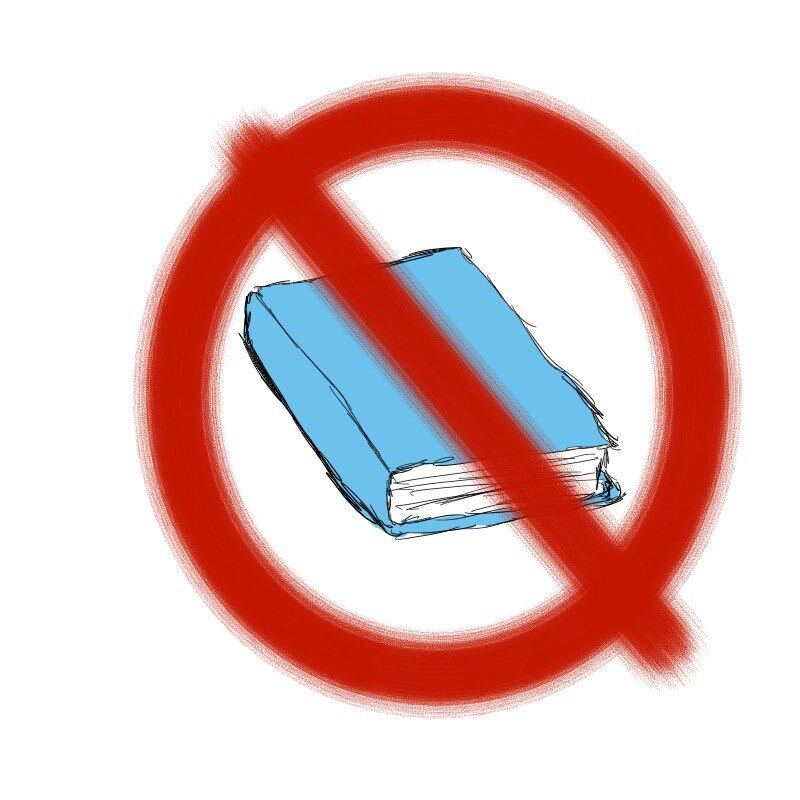Opinion | Liberals need to stop censoring books too
February 28, 2023
Roald Dahl’s book censorship fiasco captured attention when it was reported that beloved characters such as Augustus Gloop from “Charlie and the Chocolate Factory” are having their descriptions altered. To pander to a new sensitive audience — what some may call “woke” — Puffin edited sections of every Dahl book, where characters could no longer be “fat” or “ugly.” Alongside mean descriptions of characters, traditional gender roles were scrubbed from the books.
Then, backlash ensued — none of which felt quite right. An opinion author from The Wall Street Journal argued that “wokeness” will make reading “dull” and our children “bored.” Fox News went on the soap box about how wokeness is ruining history and literature, but only if conservatives don’t fight hard enough. Even Ricky Gervais — the last person you want to be running their mouth about literature — made fun of how easily people get offended.
This clash ended in Puffin opting to print unedited copies of Dahl’s works — it will now publish a “classic” version of the literature in response to the backlash. This is good news — but not for the reasons that anyone from right-leaning media will tell you.
Wokeness is not the issue, but scrubbing away history is.
One of the overarching purposes of reading old literature is to understand the culture of the past. We read books with deeply alarming historical underpinnings in them on purpose. Books such as “To Kill a Mockingbird,” “The Color Purple” and “The Absolutely True Diary of a Part-Time Indian” contain the historical context that we need to understand where we came from.
Slavery, racism, sexism and assault are incredibly difficult topics for students of all backgrounds to broach — but that is exactly the point. We can only learn from these books because they display the culture of the time, the good and the bad. If we don’t acknowledge the ugly parts of our past society, we can’t learn and grow from it.
There is a clear and fair difference though between this and the type of censorship that the alt-right is doing in the United States. They are banning anything that even remotely mentions Black history or LGBTQ+ peoples. Puffin’s intent was simply to make for a more “safe” experience for children readers to experience classic stories. This, in and of itself, is not a bad idea.
Children pick up words they hear or learn from other places and use them when they are not supposed to. Learning negative words such as “fat” and “ugly” from Dahl’s books and then insulting their classmates is problematic. But it is not the responsibility of the novel or the publishing company to cut these words from every book meant for children.
Firstly, the publisher can take separate action. Much better than direct censorship of the text would be a foreword or an afterword, which would manifest as a section of the novel purely for education purposes, dedicated to a deeper understanding of the words in historical context. In short, this message could be written by someone from the publishing company concerned about the language used in the book or the message purported from it.
This foreword could do a few things for Dahl’s books. For one, it could clearly state to children that the use of words like “fat” and “ugly” — while humorous descriptions for the characters of these novels — are unkind words to use when referring to a peer. And two, it would offer the historical context necessary to understand the function and problems of traditional gender roles.
Many of the changes made to Dahl’s books involved swapping “mother” with “parents” or “family.” For example, instead of “My mother washed my clothes” the edited version would say “My parents washed my clothes.” Referring to one’s mother as the only person who does dishes, clothes or cooks is problematic. But a foreword could note that this was what traditional gender roles looked like back at the time of the book’s publishing — and that children should not assume those roles are valid today.
Secondly, parents can take a bigger role in their children’s reading and education. We can’t assume that books or teachers will do all the educating necessary for every book that a child might read. There is freedom in what children can read in libraries, after all. But it is the responsibility and role of the parents to make sure their children are learning about the contexts of the books they are reading. Parents must educate their children on kind use of language and combating gender or racial stereotypes.
It is no secret that a culture war is underway between conservative and liberal ideologies in schools. Ron DeSantis’ crusade of books in Florida is nowhere close to stopping, and it is a danger to every child in the state. But the response by liberals should not be to censor books in their own, different way. Liberal and leftist educators must be the bastion of freedom in opposition to tyranny. It is the freedom of education that allows Americans to pursue greatness, and conservative ideology threatens to destroy that. Liberal censorship should be treated as no different.
Paul Beer writes about political affairs and reads too many album reviews. Write back to him (or send music recommendations) at [email protected].








